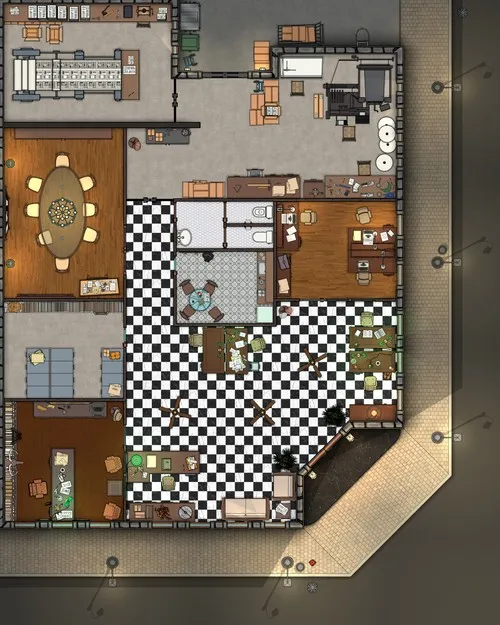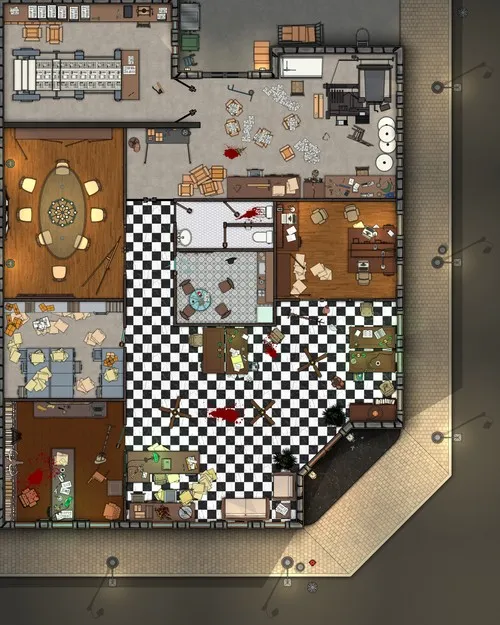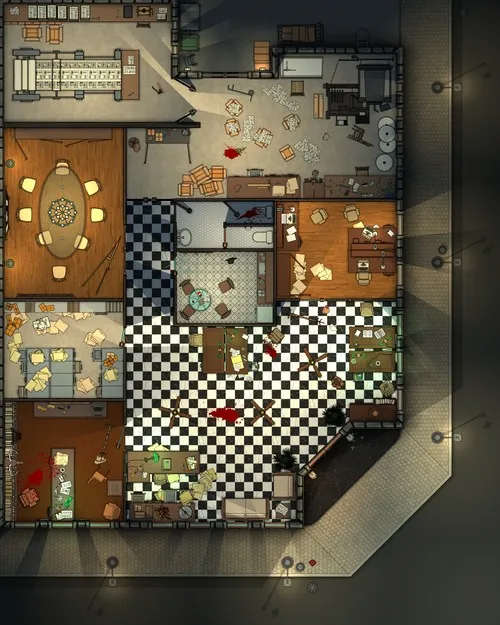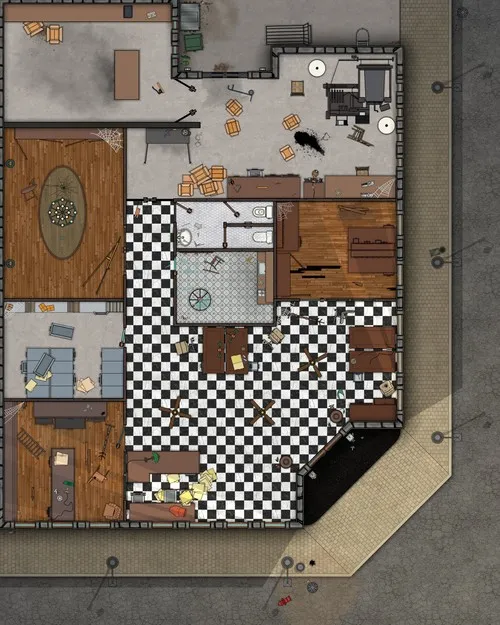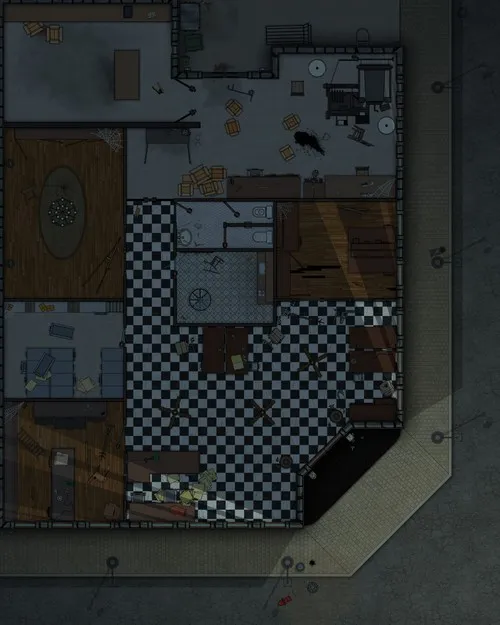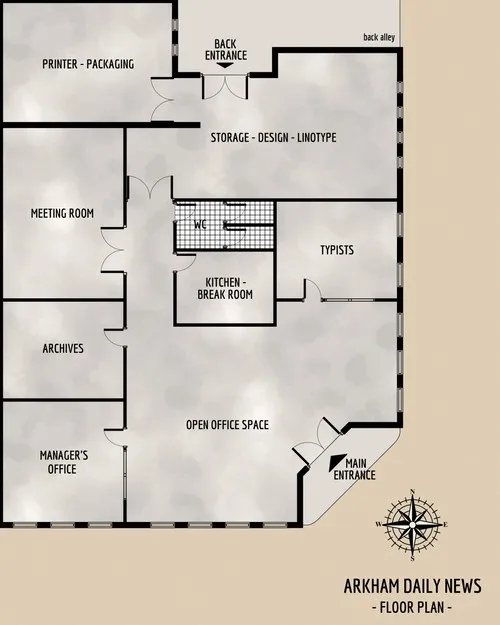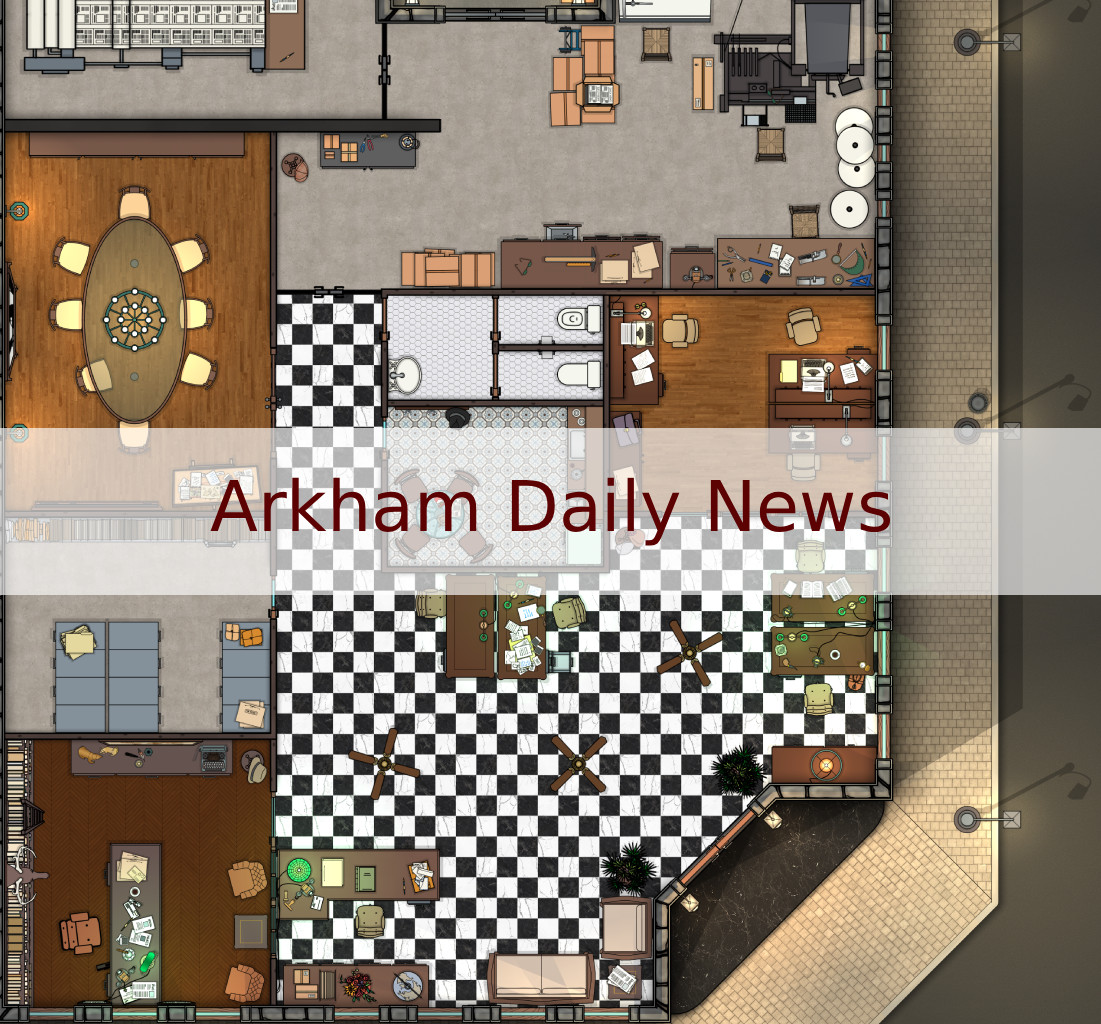Why do the printing presses run themselves at night when the building is empty? What stories were written in the editor's office that never made it to print, and why are those pages still warm to the touch? Why does the archive room contain newspapers from dates that haven't happened yet? What do the reporters mean when they say the building "remembers" the stories it should have published? Why are there ink stains on the ceiling of the newsroom that form words when viewed from a certain angle?
Follow Cthulhu Architect on BlueSky!“If you don’t read the newspaper, you’re uninformed. If you read the newspaper, you’re mis-informed.”
― Mark Twain
James arrived at the Arkham Daily News building on a Monday morning, the smell of ink and old paper already thick in the air. He’d been hired as a junior reporter, fresh from Miskatonic University, eager to make his mark. The editor, a man named Morrison with ink-stained fingers and tired eyes, showed him to a desk in the newsroom.
“Don’t stay late,” Morrison said. “The building… it gets strange after dark. The presses run themselves sometimes. Maintenance says it’s old machinery, but I’ve seen the switches. They’re off.”
James laughed it off as superstition. But by his third week, he’d noticed things. Stories he’d written would appear in the morning edition with paragraphs he didn’t remember writing. Quotes from sources he’d never interviewed. Facts that checked out perfectly, but that he couldn’t recall researching.
He found the first one in his desk drawer—a draft of an article about a missing person case. The paper was warm to the touch, though he’d left the building hours ago. The words were his handwriting, but the story was complete, detailed in ways he’d never finished. And it was dated for tomorrow’s edition.
“The building remembers,” said Sarah, the senior reporter who’d been there fifteen years. She didn’t look up from her typewriter. “It knows what stories need to be told. Sometimes it writes them itself.”
James started staying late, working on a piece about strange lights over the Miskatonic River. He’d write a paragraph, look away to check his notes, and when he looked back, three more paragraphs would be there. In his own hand. Words he didn’t remember putting down.
He found the archive room by accident, following the sound of rustling paper. The door was supposed to be locked, but it swung open at his touch. Inside, newspapers stretched back decades—and forward. He pulled one from a shelf marked “Future Editions.” The date was next month. The headline read: “Local Man Disappears After Witnessing Strange Phenomena.”
The article was about him.
That night, he stayed in the building, hiding in the editor’s office after everyone left. The printing presses started at midnight, though no one was there to operate them. He watched through the window as the massive machines moved on their own, paper feeding through, ink flowing, pages stacking themselves.
He crept down to the press room. The machines were printing tomorrow’s edition. He pulled a fresh page from the stack. The front page showed a photograph of himself, standing in front of the building. The headline: “Reporter Vanishes After Investigating Unexplained Events.”
James ran back to the main hall, but the door to the newsroom had changed. Where there had been one door, now there were three identical ones. He tried the first—it opened into a corridor that didn’t exist on the building plans. The second led to a room full of typewriters, all typing on their own, the keys moving like fingers.
The third door opened into the newsroom, but it was wrong. The desks were arranged differently. The windows showed a different view—not Arkham’s streets, but something else. Something that made his eyes water to look at directly.
Morrison was sitting at James’s desk, typing. He looked up, and his eyes were wrong. Too many angles. Too much knowledge.
“The building writes the truth,” Morrison said. “It always has. It knows what happened, what’s happening, what will happen. We just… facilitate. We make sure the stories get told.”
James backed away, but the door was gone. The walls were covered in newspapers now, all dated for future editions. He saw his own face in dozens of headlines, his name in bylines for stories he’d never written. Stories about things he’d never seen. Stories that would come true.
“You’re a good reporter,” Morrison said, standing. “The building likes you. It wants you to stay. To help tell the stories that need telling.”
James felt the floor shift beneath him. The room was changing, the angles of the walls becoming wrong, the ceiling too high, the floor tilting. He could hear the presses running below, printing tomorrow’s paper. Printing his story.
By the time Morrison led him to his new desk—the one in the corner that had always been empty, the one no one ever used—James had already forgotten why he’d wanted to leave. The typewriter was warm. The paper was already in the roller. And the first sentence was already forming in his mind, words that weren’t quite his own, but that felt right. That felt true.
The building remembered. And it was time to write.
